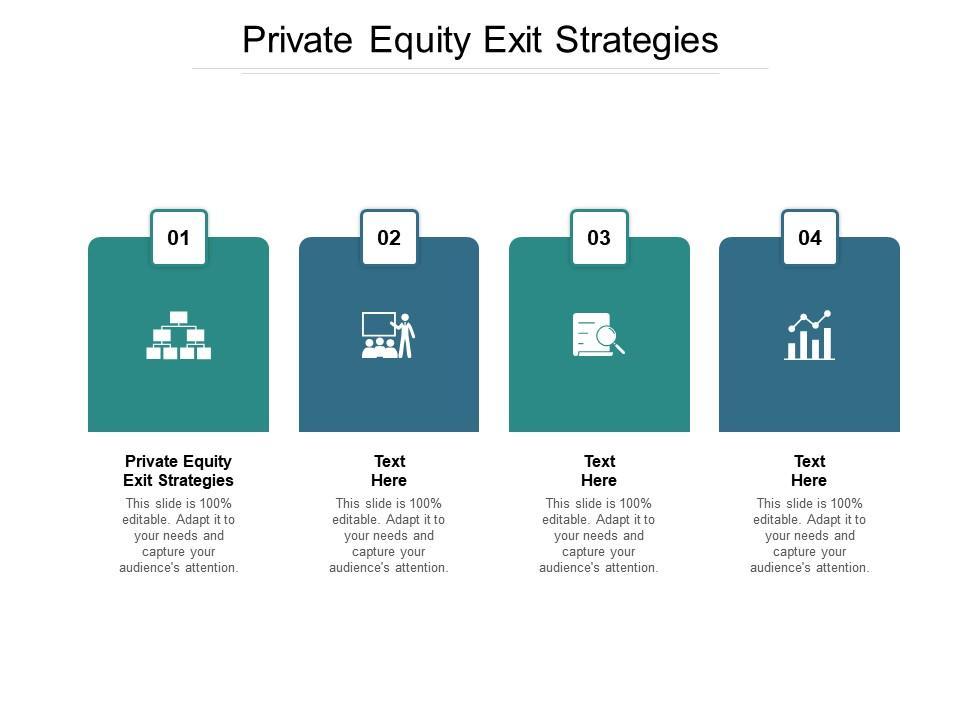Exit Strategies for Private Equity Investments

Private equity investments are a popular choice for investors looking to generate high returns on their investments. However, as with any investment, there comes a time when it is necessary to exit a private equity investment. In this article, we will explore the various exit strategies for private equity investments and the factors to consider when deciding on the best strategy for your investment.
Types of Exit Strategies for Private Equity Investments
There are several exit strategies for private equity investments, including:
- Sale of the company to a third party: This is the most common exit strategy for private equity investments. The company is sold to a third party, often a publicly traded company or another private equity firm. The return on investment is typically realized through the sale price of the company, as well as any profits generated by the company during the investment period.
- Initial Public Offering (IPO): In some cases, the company may choose to go public through an IPO. This allows the company to raise capital through the sale of shares to the public, and the private equity investors can realize a return on their investment through the sale of their shares in the company.
- Merger or acquisition: In some cases, the company may choose to merge or be acquired by another company. This can be a good exit strategy if the company is able to realize a higher valuation through the merger or acquisition.
- Liquidation: In some cases, the company may choose to liquidate its assets and pay out the proceeds to the private equity investors. This is typically a less common exit strategy, as it can result in a lower return on investment.
Factors to Consider When Deciding on an Exit Strategy
There are several factors to consider when deciding on the best exit strategy for your private equity investment. These factors include:
- Time horizon: The time horizon of the investment will impact the exit strategy. If the investor has a short-term time horizon, they may choose to sell the company to a third party or go public through an IPO. If the investor has a longer-term time horizon, they may choose to wait for the company to grow and become more valuable before selling.
- Valuation: The valuation of the company will impact the exit strategy. If the company is highly valued, the investor may choose to wait for the company to grow and become more valuable before selling. If the company is undervalued, the investor may choose to sell the company to a third party or go public through an IPO.
- Market conditions: The market conditions will impact the exit strategy. If the market is favorable for the company, the investor may choose to wait for the company to grow and become more valuable before selling. If the market is unfavorable, the investor may choose to sell the company to a third party or go public through an IPO.
- Strategic fit: The strategic fit of the company will impact the exit strategy. If the company is strategically aligned with the investor's goals, the investor may choose to wait for the company to grow and become more valuable before selling. If the company is not strategically aligned with the investor's goals, the investor may choose to sell the company to a third party or go public through an IPO.
Conclusion
Private equity investments can be a lucrative way to generate high returns on investments. However, as with any investment, it is important to have an exit strategy in place. The various exit strategies for private equity investments include sale of the company to a third party, initial public offering, merger or acquisition, and liquidation. When deciding on the best exit strategy, it is important to consider the time horizon, valuation, market conditions, and strategic fit of the company. By considering these factors, investors can make informed decisions and achieve their investment goals.
best exit strategy for private equity investmentsselling private equity investmentsgoing public through IPOmerging or acquiring private equity investmentsliquidating private equity investmentsconsidering factors when deciding on exit strategyprivate equity investment time horizonvaluation of private equity investmentsmarket conditions for private equity investmentsstrategic fit of private equity investments





